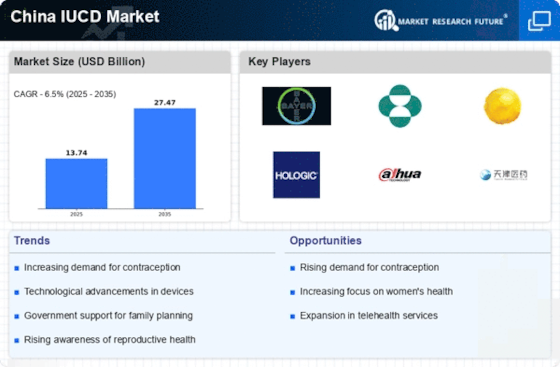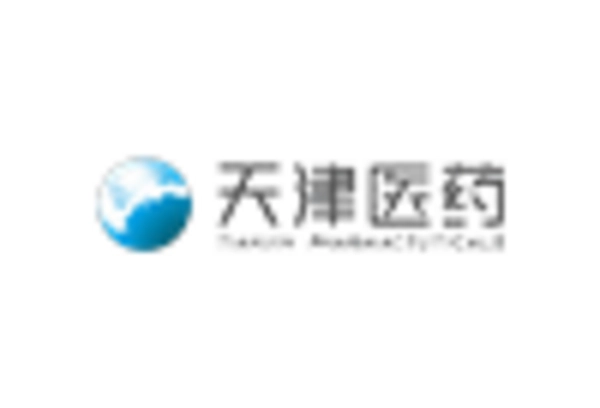Market Analysis
In-depth Analysis of China IUCD Market Industry Landscape
The Intrauterine Contraceptive Device (IUCD) market in China is encountering huge elements driven by different variables, including evolving socioeconomics, expanding awareness about family planning, and progressions in healthcare framework. As one of the most populated nations worldwide, China's IUCD market assumes a pivotal part in molding the general contraceptive market scene. China's enormous and different populace is a critical driver of market elements. The public authorities beyond one-child policy have formed the conceptive options of its residents. With the unwinding of this policy, there is an expanded accentuation on family arranging, prompting a surge for contraceptive strategies, including IUCDs. The various segment piece, with metropolitan and rural varieties, further impacts market patterns and inclinations. The rising extra cash and healthcare use in China directly affect the IUCD market. As customers become more health-cognizant and ready to put resources into solid contraceptive strategies, the market encounters growth. Rationality and accessibility become urgent elements in forming the market elements, with a prospering working class looking for dependable family arranging arrangements. Social perspectives and cultural standards fundamentally impact the IUCD market elements in China. While family arranging is supported, social insights around contraception might differ. Understanding and exploring these social subtleties are essential for market players to tailor their items and marketing procedures. The flow directs for IUCDs in China are developing, with a shift towards online stages and web-based business. This change in the dissemination scene is driven by expanded computerized proficiency and comfort looking for conduct among purchasers. Organizations are adjusting to these progressions by improving their internet-based presence and streamlining dispersion organizations. The fate of the IUCD market in China seems promising, driven by progressing segment shifts, government drives, mechanical progresses, and changing shopper inclinations. As the nation proceeds to modernize and urbanize, the market is supposed to observe further developments and growth, making it a key center region for both homegrown and worldwide players.


















Leave a Comment